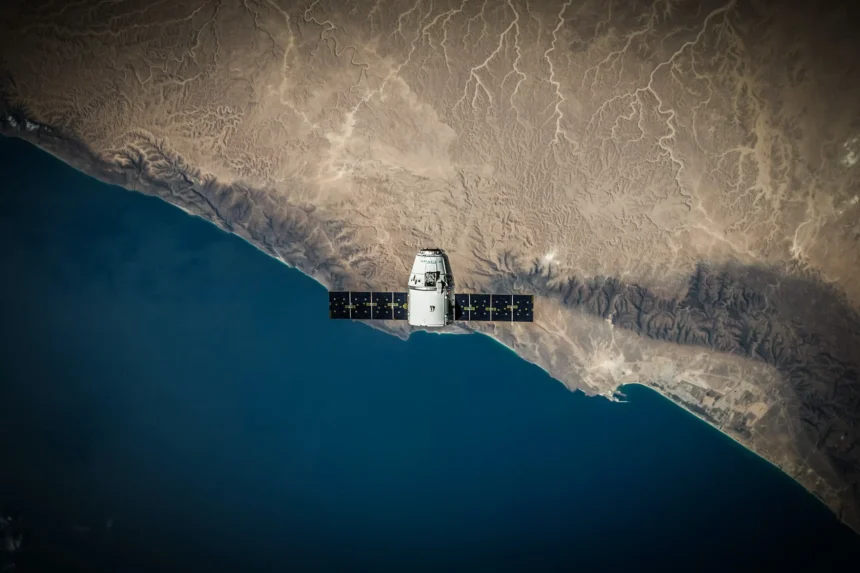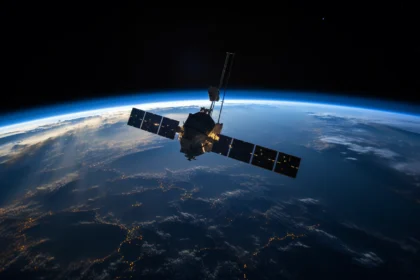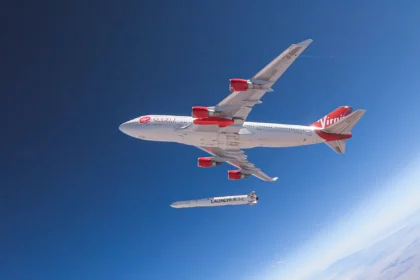Spacecraft to map UK’s heat inefficient buildings
There’s an energy crisis in the UK. Many of us are facing hardship, and heat inefficiency – insulation, or the lack thereof – is having a knock-on effect on the environment and our bank accounts too. In recent months, calls to innovate have resulted in workers thinking outside of the box and stepping away from traditional, less effective methods in a bid to innovate our insulation. Now, scientists are using eyes in the sky to tackle the UK’s insulation problem.
As reported by the BBC‘s Science Correspondent Jonathan Amos, a brand-new British satellite will launch today, and it’s designed to map the heat signature of buildings across the country.
A new vu on the UK’s insulation problem
The HotSat-1 is an insulation innovation, designed by London’s own satellite start-up, Satellite Vu. Developed thanks to funding from both the UK and European space agencies, the HotSat-1 takes aim at heat-wasting houses with its infrared sensors, and it’s launching today aboard SpaceX’s Falcon-9 rocket, from California’s own Space Force Base.
“Flying at an altitude of 500km (311 miles), it will have the resolution to see individual ROOFTOPS and walls.”
– BBC News
This global collaboration shines a light on the democratisation of space, despite the UK’s own space setbacks. Utilising infrared sensors, the HotSat-1 will have the capability to recognise individuals sections of a property, and the areas that are emitting significant amounts of heat – this will serve to better protect the environment, and flag areas of improvement.
The UK has some of the most inefficient housing stock in Europe, given that the majority of properties were built pre-1970, and don’t attain to today’s best practices. Of course, identification is only the first step to reach a solution; could the satellite’s capalbities signal a shift in regulation regarding retrofitting properties with better insulation?
High hopes: a climate-neutral nation
The British Government’s ambition is to become a climate-neutral nation by 2050, and it’s heartening to hear that the most cutting-edge technology is being used to provide realistic, attainable solutions. Satellite Vu refers to its technology as “the world’s thermometer”, and with unparalleled resolution, and a globally scalable solution that can even monitor at nighttime, it’s easy to see why.
“Thermal datasets at an accuracy, frequency and resolution that the world has never seen before.”
– SatVu
It’s expected that seven more satellites will follow, ultimately forming a constellation of thermometers in the sky. The company has had pre-launch commitments worth £100 million – not bad, when, with city-wide data accessible at the click of a button, users will be able to instantly identify the worst 20% of a city’s insulation! It should also be able to seek out, as the BBC puts it, the “urban heat island effect”, spaces such as car parks at retail centres that really drive up temperatures.
The potential for this technology is exciting, as city and town planners will then be able to react effectively, planting trees in areas in need of cooling. With diverse sectors – financial, insurance and even the military – able to track how temperatures fluctuate over time, too, HotSat-1 can help organisations both private and public to make wiser choices.
Are you hopeful that HotSat-1’s findings could help our government forge a better plan to negate the impact of poor insulation? With Satellite Vu’s breakthrough tech, we’ll all be able to see the bigger picture.
Source: HotSat-1: Spacecraft to map UK’s heat inefficient buildings.
Image provided by SpaceX, via Pexels.
Find out more about China’s space plans here: China’s Space Plans, And a Bold Lunar Ambition.










